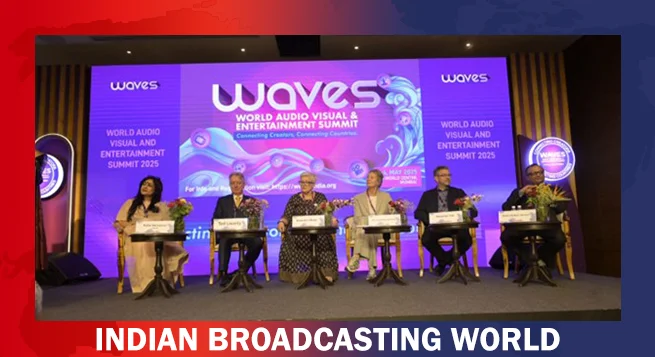Major changes are in the offing at Mouse House as CEO Bob Iger looks to trim the fat (read shed unviable or struggling businesses), including reported hunt for strategic partners for sports brand ESPN and Star India, which not so long ago contributed a sizable percentage of subscribers (through Hotstar) in the global numbers of Disney’s streaming business.
Now media reports in the US indicate that Disney is looking for strategic partner(s) for ESPN and according to a CNBC report on Friday last, Iger and ESPN head Jimmy Pitaro have held early talks about bringing professional sports leagues on as minority investors, including the National Football League, National Basketball Association and Major League Baseball.
Quoting unnamed people familiar with the matter, the CNBC report said ESPN has held preliminary discussions with the NFL, NBA and MLB about a variety of new partnerships and investment structures, the people said.
In a statement, an NBA spokesperson said, “We have a longstanding relationship with Disney and look forward to continuing the discussions around the future of our partnership.”
Spokespeople for ESPN, the NFL and MLB declined to comment for the CNBC report.
Iger said recently in an interview with CNBC’s David Faber that Disney is looking for a strategic partner for ESPN as it prepares to transition the sports network to streaming. He didn’t elaborate on what exactly that meant beyond saying a partner could bring additional value with distribution or content. He acknowledged selling a stake in the business was possible.
Disney owns 80 percent of ESPN. Hearst owns the other 20 percent.
“Our position in sports is very unique and we want to stay in that business,” Iger said to Faber. “We’re going to be open minded about looking for strategic partners that could either help us with distribution or content. I’m not going to get too detailed about it, but we’re bullish about sports as a media property.”Theoretically, a jointly owned subscription streaming service among multiple leagues could eventually give consumers new packages of games and other innovative ways to take in content, the CNBC report elaborated.
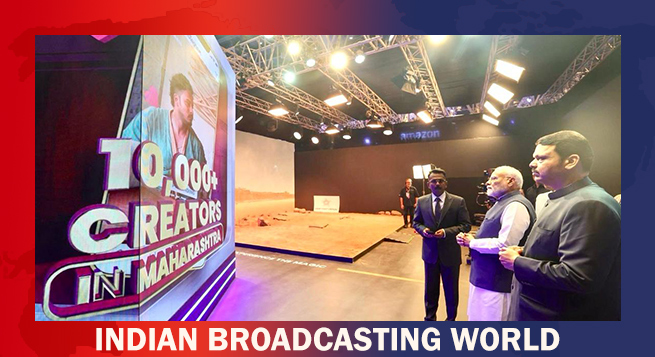 MIB to unveil M&E sector statistical handbook today at WAVES
MIB to unveil M&E sector statistical handbook today at WAVES 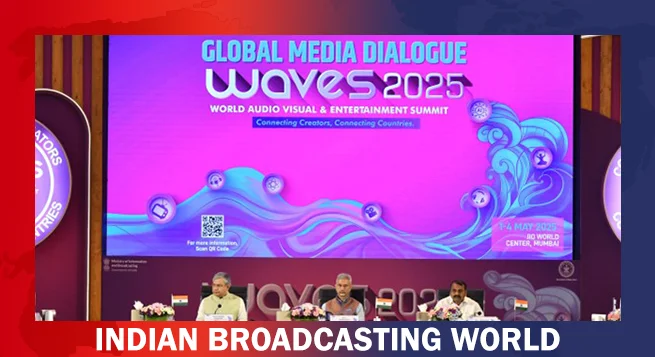 WAVES 2025: Media dialogue backs creativity, heritage & ethics in AI Era
WAVES 2025: Media dialogue backs creativity, heritage & ethics in AI Era 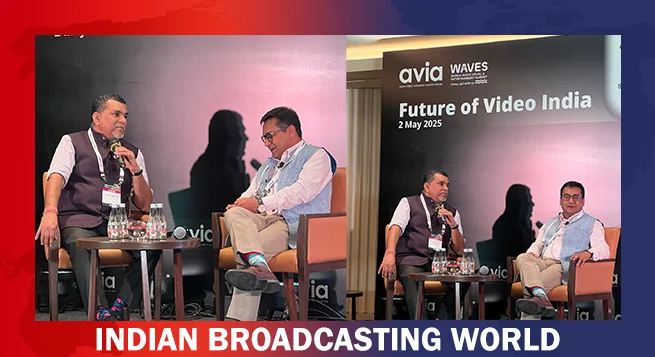 Pay TV leaders chart course for India’s linear TV in digital age
Pay TV leaders chart course for India’s linear TV in digital age 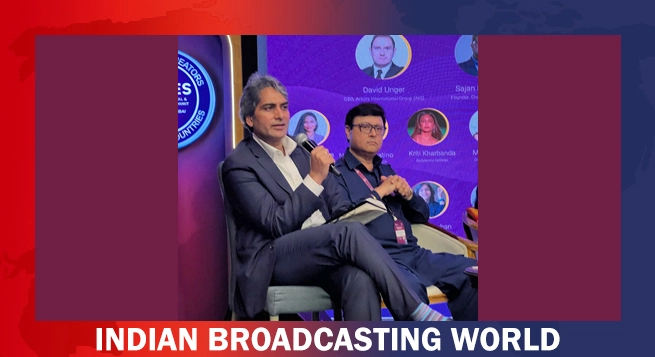 Sudhir Chaudhary announces new show for DD News, says “Good content still has a place” at WAVES 2025
Sudhir Chaudhary announces new show for DD News, says “Good content still has a place” at WAVES 2025 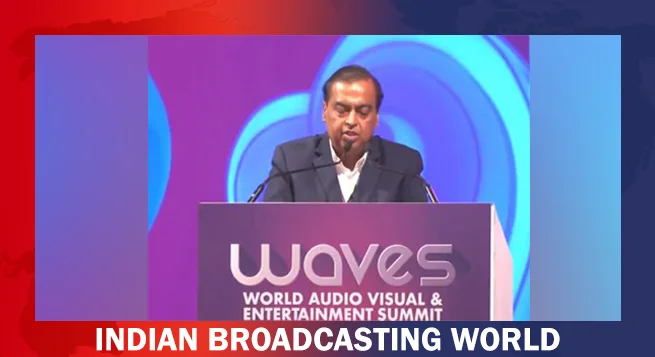 India can lead global entertainment revolution: Mukesh Ambani
India can lead global entertainment revolution: Mukesh Ambani 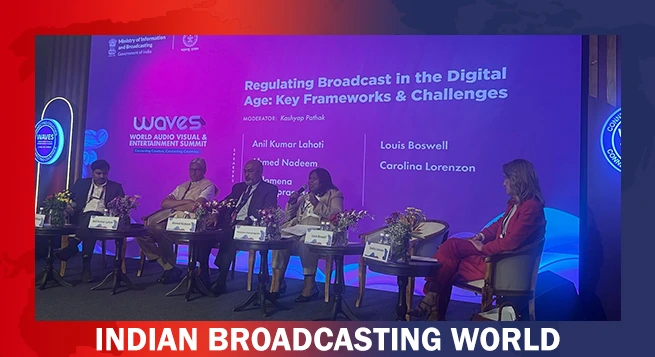 TRAI chief not in favour of separate rules for OTT, legacy b’casters
TRAI chief not in favour of separate rules for OTT, legacy b’casters 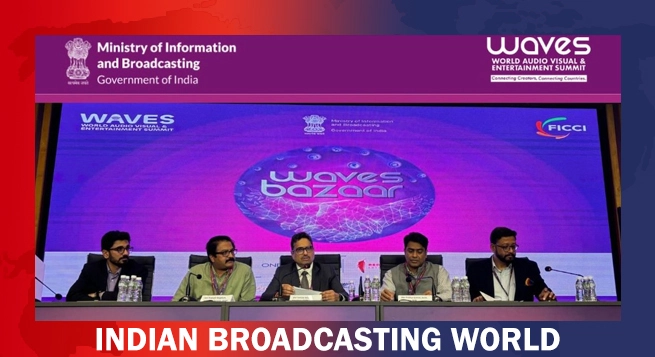 WAVES Bazaar seals Rs.250 crore in global media deals
WAVES Bazaar seals Rs.250 crore in global media deals 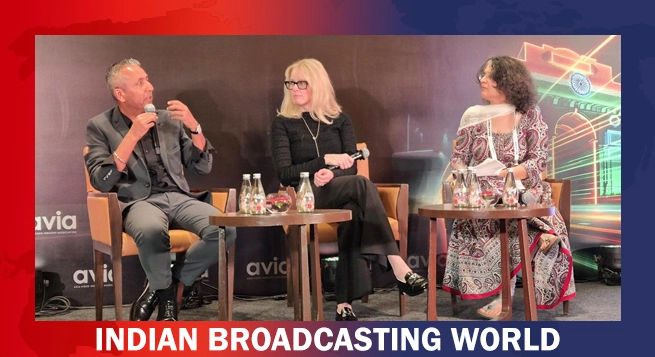 Prime Video reaffirms theatres’ appeal & India, global strategy at Avia’s FoV
Prime Video reaffirms theatres’ appeal & India, global strategy at Avia’s FoV 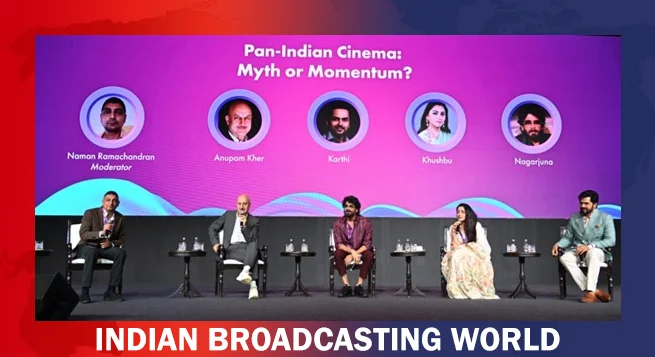 Language no bar; stars say Indian cinema is united by emotion, culture
Language no bar; stars say Indian cinema is united by emotion, culture 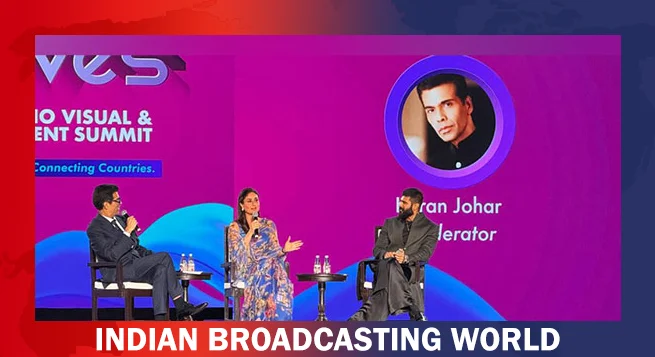 Spielberg recognised me from ‘3 Idiots’, says Kareena at WAVES 2025
Spielberg recognised me from ‘3 Idiots’, says Kareena at WAVES 2025 



